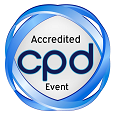
Arthur Engler
University of Connecticut
Title: Effectiveness of a perinatal and pediatric End-of-Life Nursing Education Consortium (ELNEC) curricula integration
Biography
Biography: Arthur Engler
Abstract
Background: Educational practices and national guidelines for best practices of providing palliative care to children and their families have been developed and are gaining support; however, the dissemination of those practices lags behind expectations. Incorporating education for pediatric palliative care into nursing pre-licensure programs will provide guidelines for best practices with opportunities to enact them prior to graduation. Objective: To evaluate the effect of an integrated curriculum for palliative care on nursing students' knowledge. Design: Matched pretest–posttest. Setting: One private and one public university in the northeastern United States. Participants: Two groups of baccalaureate nursing students, one exposed to an integrated curriculum for palliative care and one without the same exposure. Methods: Pre-testing of the students with a 50-item multiple choice instrument prior to curriculum integration and post-testing with the same instrument at the end of the term. Results: This analysis demonstrated changes in knowledge scores among the experimental (n = 40) and control (n = 19) groups that were statistically significant by time (Wilks' Lambda = .90, F(1, 57) = 6.70, p = .012) and study group (Wilks' Lambda = .83, F(1, 57) = 11.79, p = .001). Conclusions: An integrated curriculum for pediatric and perinatal palliative and end-of-life care can demonstrate an increased knowledge in a small convenience sample of pre-licensure baccalaureate nursing students when compared to a control group not exposed to the same curriculum. Future research can examine the effect on graduates' satisfaction with program preparation for this specialty area; the role of the use of the curriculum with practice-partners to strengthen transfer of knowledge to the clinical environment; and the use of this curriculum inter professionally.

